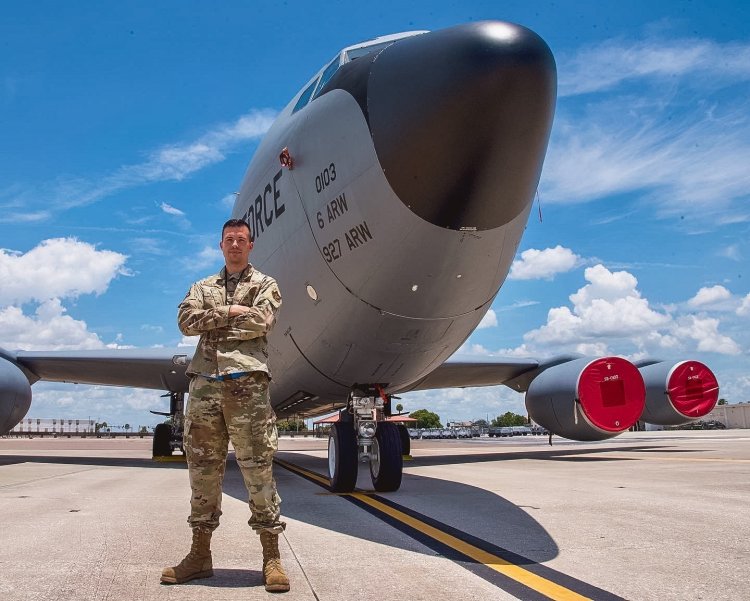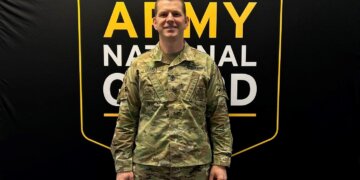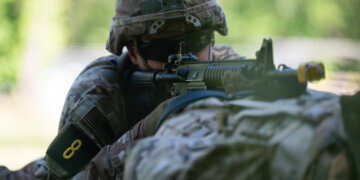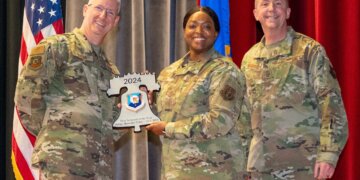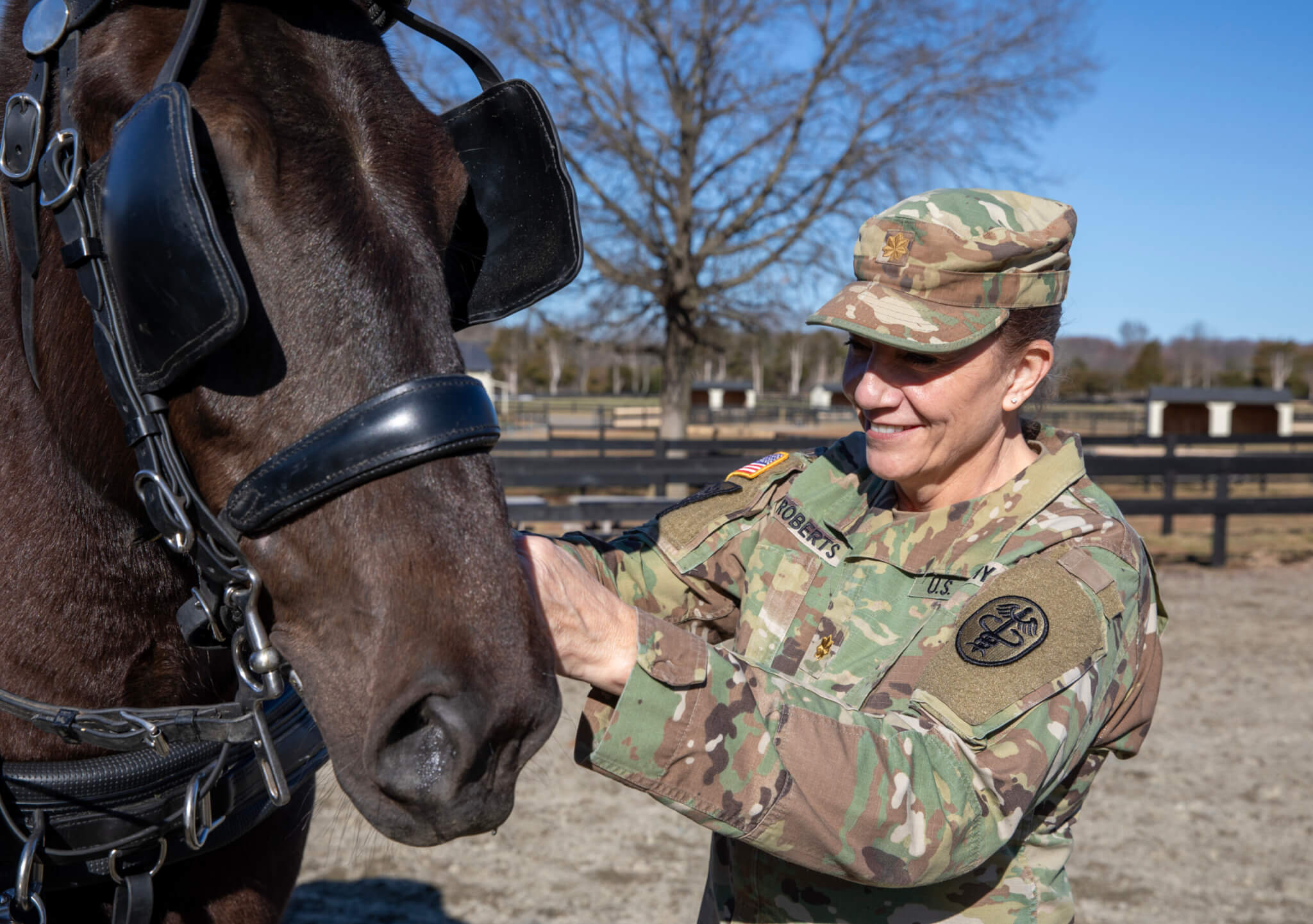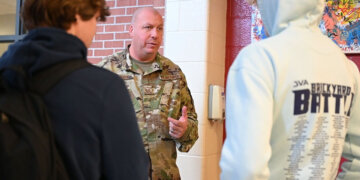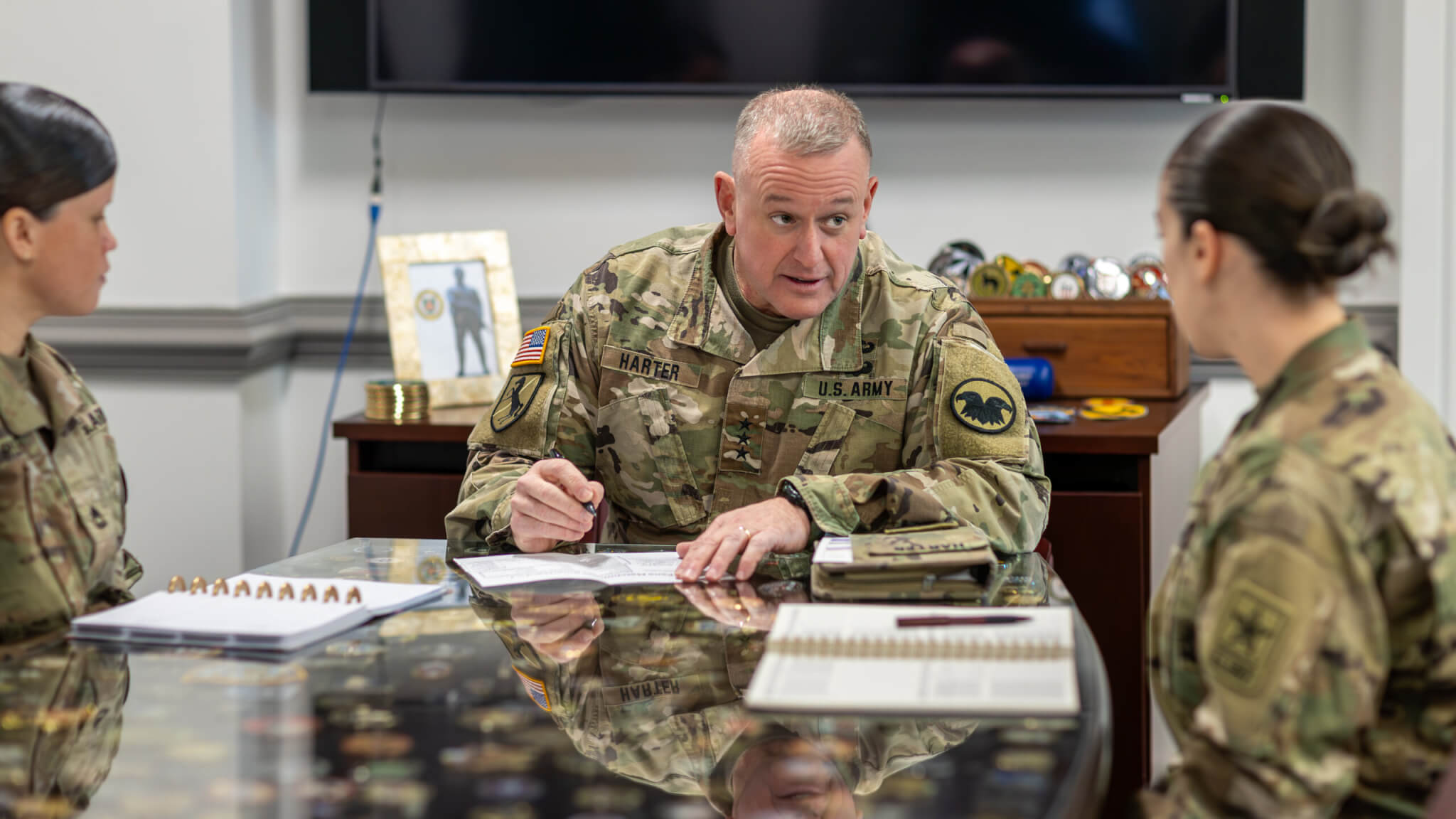This article was originally published in the 2022 1st Quarter edition of Reserve & National Guard Magazine.
An airman who was named crew chief of the year said enlisting in the military was a “win-win”— allowing him to see the world while providing a path to college.
Tech. Sgt. Cody Plopper, who serves with the 927th Aircraft Maintenance Squadron, was named Air Force Reserve Command’s Crew Chief of the Year in 2021. His award nomination cited such career accomplishments as enabling successful counter drug operations; prepping aircraft for Tropical Storm Eta and Hurricane Isaias; and securing on-time POTUS support. He also assisted an injured wingman by administering rapid first aid and applying trauma response, according to the document.
Plopper, 29, originally enlisted for active duty with the Air Force in 2011. He says he began considering military service after his brother joined the Army. The two spoke about the education benefits that would allow Plopper to attend college — an opportunity he initially wouldn’t have been able to afford, he says.
“I always knew I wanted to go to college, but a lot of the universities I was looking at were out of my price range, and that’s when I talked to my brother about the military and the availability of them paying for school,” he said. “It started as a way to open up new opportunities, travel the world and prepare for future career paths.”
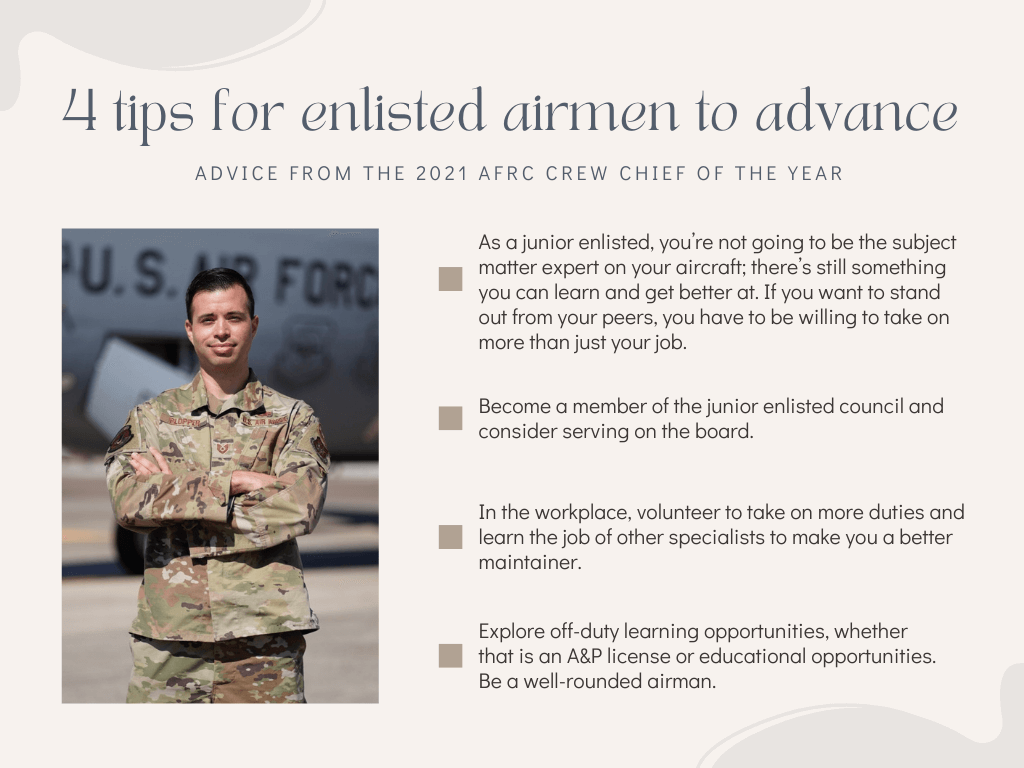
Plopper says he met with a recruiter “who talked up the flying-crew-chief aspect of things where, wherever the plane goes, we go. I get to travel the world, and as a small-town kid that was an exciting idea.”
The Lufkin, Texas-native was eventually stationed in Florida. He extended his contract for a year after his initial six-year obligation to “feel out” if pushing to the 20-year retirement mark was right for him. Plopper says he ultimately transitioned to the reserve side for stability.
“I found it (active duty) was kind of a stressful life, as far as having a family,” he said. “At the time, I had my wife and my son, and she was finishing up her degree to become an engineer and there was just a lot going on. Active duty required a lot out of you; in aircraft maintenance, there was a lot of moving shifts, so sometimes you would think you have your whole day planned out and then maybe next month you’re on a different shift. And not being in Texas, we didn’t have family here and it was a constant changing of babysitters. … We needed something more stable.”
‘We had more stability’
Plopper learned about the Air Reserve Technician (ARTs) program at MacDill Air Force Base that allows a standard Monday through Friday work schedule, with the benefit of retaining the uniform and the airframe he was qualified for. ART jobs “span a broad spectrum to include commander, flight instructor, aircraft mechanic, aircraft maintenance officer, nurse, loadmaster and human resource officer,” according to Air Force Reserve Command’s website, with 10,000 professionals across more than 100 occupations.
“I could continue doing the job that I was enjoying … with a lot of the similar benefits like health care,” Plopper said. “I got hired on in a higher position because I knew what I was doing with the airframe. … The family didn’t have to get uprooted, and we had more stability.”
He added that there was a culture difference, too, with it being “a more family friendly environment” that he described as taking stress off his personal life. The stability also allowed him to work on his education amid a growing family. At the time he spoke with Reserve & National Guard Magazine, Plopper was actively entertaining his 10-week-old daughter who cooed in the background during the interview. He also recently completed a bachelor’s degree from the University of South Florida, which he said will open the door to graduate programs.
As for what helped him stand out to be named top in his field, Plopper says it was the managerial-type roles he took on when he first transitioned to the reserves.
“I was placed in an expediter role, essentially in charge of logistics on the flight line. So, we make sure that our maintainers, whether they’re crew chiefs or a certain specialty shop — we have avionics, communications experts, electronics, whatever the case may be — we essentially drive around in a vehicle and make sure they get to whatever job needs to be done. It’s a lot of balancing manpower and jobs.”
RELATED: Air Force Reserve offered Guatemalan immigrant the American Dream
His unit’s proximity to CENTCOM and SOCOM also means interactions with dignitaries like the president of the United States.
Plopper’s standing as a designated crew chief allows him to be assigned to a specific aircraft that bears his name.
“I ensure that aircraft has a good reliability rate, cleanliness, etc. You essentially take pride in it like it’s your own vehicle,” he said.
And, because he is a flying crew chief, he goes on the road with his KC-135 Stratotanker for real-world missions — including adding assets to the frontlines overseas and aiding other aircraft by extending capabilities through aerial refueling.
From aviation to medication
Curiosity of how things work has always extended beyond aviation for Plopper, who declared a long-term goal of pursuing a medical career. His bachelor’s degree, which was funded through post-9/11 GI Bill benefits, is in biological health sciences and checks off prerequisites needed for his next program.
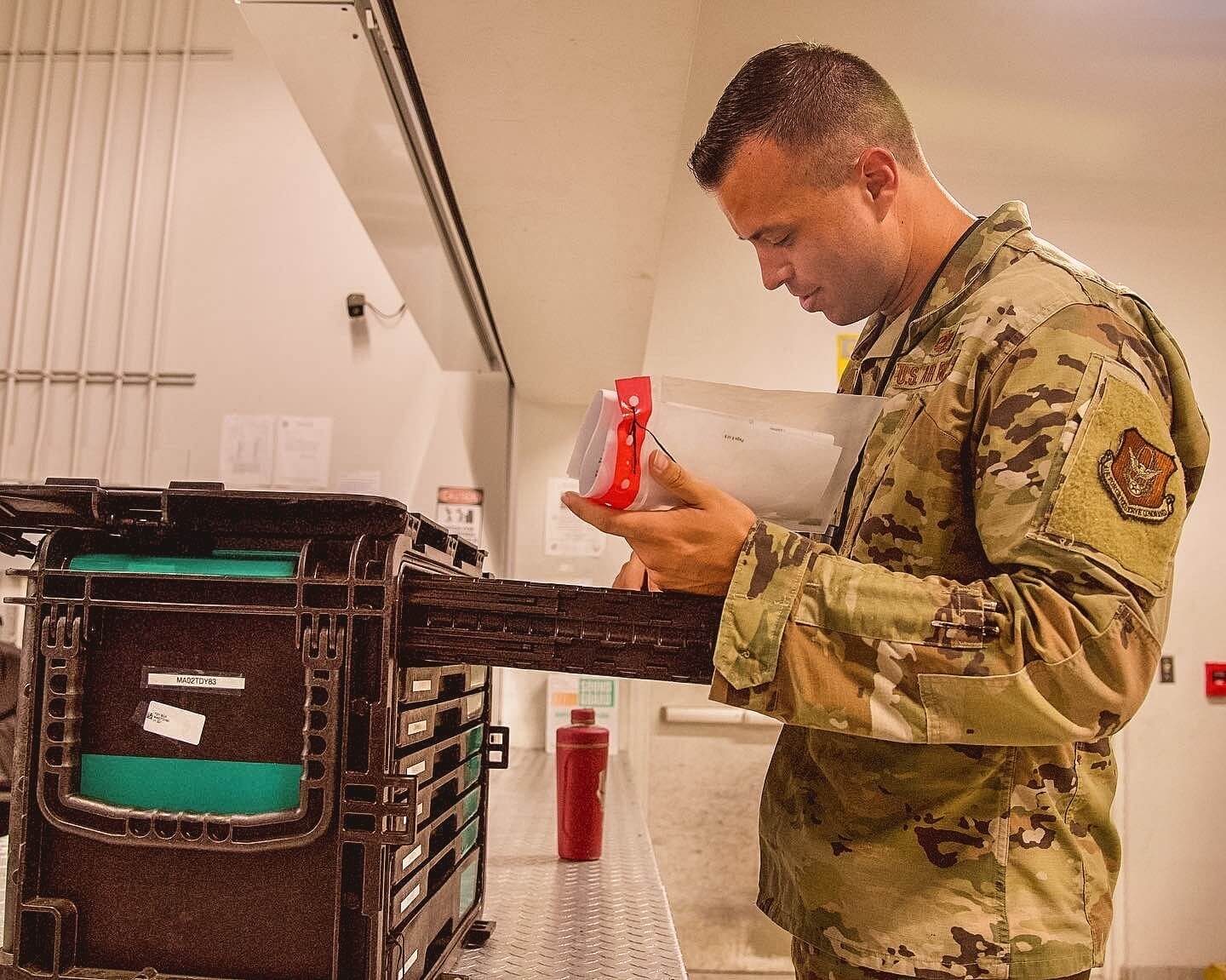
“Throughout school I always knew I wanted to do something medical; anatomy and physiology has always been very exciting to me — how things work, which I think correlates to the airframe as well,” he said. “I do find it interesting how the plane works in itself but I love finding out everything about how the human body works, with it being different person to person.”
He is specifically focused on becoming a physician assistant (PA), and he credits the Air Force with helping him on his path. MacDill, he explained, has an aeromedical evacuation squadron that interests him because it “does everything essentially a paramedic would do on an aircraft.”
Once he starts his PA program, Plopper said his focus will shift fulltime to school, but he will be able to maintain his reserve status throughout the duration. After completion, he has several options including “going the civilian route” or exploring a PA position for the Air Force Reserve.



